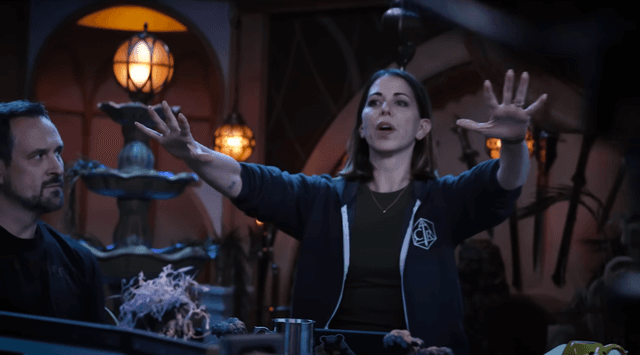If you click on a link and make a purchase we may receive a small commission. Read our editorial policy.
When Professor X was ruined as a key part of the X-Men, according to a top Marvel editor
Xavier's dream is flawed because Xavier is flawed, according to Marvel executive editor Tom Brevoort

Popverse's top stories
- "And my axe!" Lord of the Rings star John Rhys Davies says there's one world leader who deserves Gimli's iconic weapon
- From Final Fantasy to the X-Men: Welcome to Popverse's celebration of love in pop culture
- What your Dispatch ship choice says about you
Although in story the 'X' in X-Men stands for the X-Gene that differentiates mutants from human, for many the X comes from the name of its founder, Charles 'Professor X' Xavier. But if you've been a fan of the X-Men for any good length of time, you'll come to see that he's been written to be far from the perfect leader - and for Marvel Comics' new top X-Men Tom Brevoort, it's seriously hampered the character.
"As far as Professor Xavier goes, I think he has the same problem in the modern age that such characters have been facing going back to the '70s at least: he’s an authority figure, and as a culture, we have a deep distrust of authority figures," Brevoort writes on Substack. "Consequently, on multiple occasions, Xavier has been shown to be not just flawed but actually abhorrent in his actions, betraying the morality that he’s meant to represent."
Brevoorts points to two recent stories that he says "tainted the character in a permenant way." The first is the 2004 - 2008 Astonishing X-Men run by Joss Whedon and John Cassaday - specifically for storythread in which the Danger Room, the X-Men's longtime practice area, was revealed to be a sentient being that Xavier had purposely chained away to serve as a tool rather than allowed to be a free being.
The second is 2006 limited series X-Men: Deadly Genesis, which revealed that Xavier once sent an then-unkonwn team of X-Men to their deaths in a botched attempted to save the original X-Men, and after failing Xavier used his telepathy to erase everyone's memories of those fallen heroes.
"There’s flawed, and then there’s being a monster, and especially in a world in which Magneto is more and more often presented as being on the right side of their philosophical argument, that means it’s difficult for Professor X to fulfill the role that he was designed for," says Brevoort. "And that’s a genuine problem given that the entire series is predicated on 'Xavier’s dream'. For all that people can say, 'Love the dream, hate the dreamer', I don’t think it’s anywhere near that simple in practice."
This perspecitve of Brevoort's is somewhat similar to his views on the original Ant-Man Hank Pyn, who he believes was changed in a way that made him hard to use in the same way. For Xavier, he sees the above two events as an inextricable part of the character that inevitably gets played out again and again in other storylines.
"So that makes it tough to do anything with Xavier that isn’t more of the same, more instances wherein he’s shown to be a compromised individual whose moral compass is highly situational," says the editor. "Beyond that, I don’t really want to say anything more, as Xavier is in active play throughout the conclusion of the Krakoa books and I wouldn’t want to spoil anything about that storyline ahead of time."
Keep up to date on Popverse's Marvel coverage, with these highlights:
- The MCU needs Anya Taylor-Joy's Magik in it (and not just for the X-Men connection)
- How Disney+'s What If...? is the moonshot for the next 50 years of Marvel Studios & the MCU
- Marvel Studios has accidentally created a new Phase that predates Phases 1 - 6: the MCU Phase Zero
- Overgrown children of the atom: Marvel's X-Men can't evolve past their '90s commercial peak
- The biggest outstanding questions of the Marvel Studios' movies & TV shows
- Donald Trump is the landlord for Marvel's House of Ideas
- Marvel Studios swapping out Doctor Doom for Kang offers the chance to jettison the Multiverse Saga
- What Marvel Studios boss Kevin Feige is saying (and not saying) about the MCU X-Men franchise says a lot about the future of the Mutant Saga
- If Marvel is going to bring Loki back for Secret Wars, it's time to give him an upgrade
- In 2021, Sony's boss said people won't miss Spider-Man in its Spider-adjacent movie. Turns out, they do.
Follow Popverse for upcoming event coverage and news
Find out how we conduct our review by reading our review policy
Let Popverse be your tour guide through the wilderness of pop culture
Sign in and let us help you find your new favorite thing.
















Comments
Want to join the discussion? Please activate your account first.
Visit Reedpop ID if you need to resend the confirmation email.